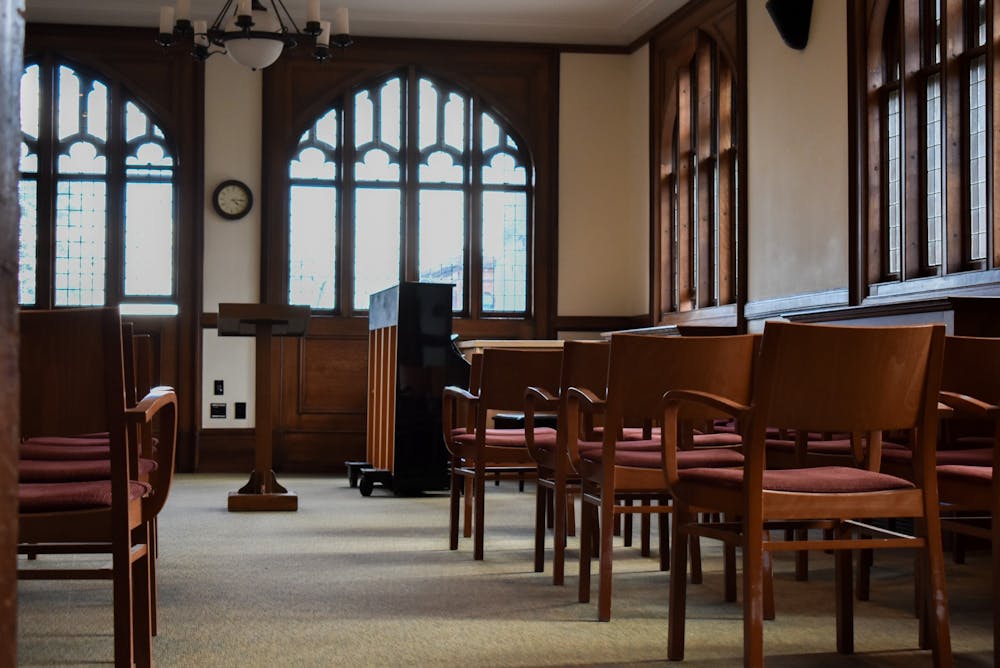The first time that I ever received any serious reprimand for misbehavior in school was in the seventh grade. At the suburban midwestern Jewish Day School I attended from ages 8 to 14, we commemorated a wide variety of Jewish holidays. But as I came of age, I became increasingly skeptical about the “Jewish” content of many of the events that we celebrated.
Towards the end of an all-school assembly celebrating Israel’s Independence Day in 2013, I refused to stand and sing the Israeli national anthem with the rest of my peers, and held a printed image of a Palestinian flag. I wish that I could say that my actions were wholly motivated by a selfless demonstration of solidarity with Palestinians subjected to what a litany of human rights groups has aptly described as Israeli apartheid. But truth be told, my conduct also reflected, at least in part, the antics of an attention-seeking teenager.
Retroactive analysis of my intentions aside, after I refused to participate in the singing of the anthem, a school administrative figure rushed to my side and insisted that I stand. I didn’t. Later that day, another school employee insulted me and compared my behavior to that of Hitler. It was a deeply painful and formative experience.
The lesson I learned that day was clear: whenever young American Jews questioned their relationship to the state of Israel, others would question their Jewishness. Jews like me are branded by Jewish community leaders as “Un-Jews,” and regularly excluded from the institutional Jewish world, including at Princeton’s own Center for Jewish Life (CJL). (Take for example, the recent advocacy of CJL Executive Director Rabbi Gil Steinflauf ’91 for the IHRA definition of antisemitism, which effectively equates anti-Zionism with antisemitism, serving to brand many Jews critical of Israel as either self-hating or not Jewish altogether.)
In a letter sent to the student body last week, Dean of the College Jill Dolan directed members of the Princeton community to a list of religious holidays compiled by the Office of Religious Life (ORL). Among the Jewish holidays on the ORL list: Israeli Independence (Yom HaAtzmaut) and Israeli Memorial Day (Yom HaZikaron).
The ORL’s inventory and Dean Dolan’s email served as yet another example of the painful erasure of non- and anti-Zionist Jews from the Jewish community on this campus. To state the obvious: Israeli Independence and Memorial Day are not historic Jewish holidays; they are recent inventions of a modern nation-state. (No other day of national independence or memorial is on the ORL list.)
Many non- and anti-Zionist Jews, such as myself, are uncomfortable with undiscriminating celebrations of Israel’s Independence, which entailed the mass expulsion of more than 700,000 Palestinians, a process amounting to ethnic cleansing. And Yom HaZikaron — an uncritical day of mourning for Israeli soldiers and terror victims — is similarly problematic, often ignoring the root causes of Palestinian resistance to occupation and apartheid, to say nothing of the millions of Palestinians who have suffered and received no such memorial.
Judaism is not Zionism. And when campus administrators imply that they are one and the same, it is inaccurate and offensive. The University should not be in the business of declaring new Jewish holidays, especially when such proclamations serve exclusionary and reactionary ends.

Zachariah Sippy is a senior from Lexington, Kentucky, and Managing Editor emeritus of The Daily Princetonian.









